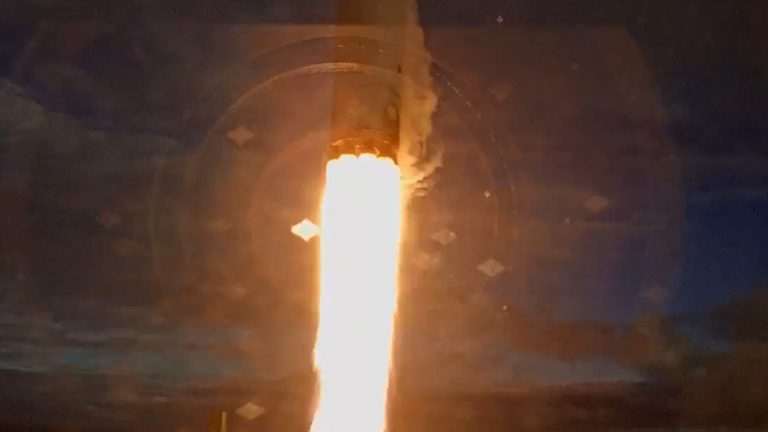
[ad_1]
The company’s RS1 rocket lifts off on its inaugural launch attempt from Kodiak, Alaska on Jan. 10, 2023.
ABL Space
The first mission by ABL Space got off the ground on Tuesday, but the company’s RS1 rocket suffered an issue early in the flight that caused it to fail shortly after lifting off.
ABL President Dan Piemont told CNBC that the RS1 rocket stayed within the predefined “acceptable flight corridor” during the short launch, but after rocket’s engines shut down, the vehicle “impacted directly on the launch pad,” causing damage.
It wasn’t immediately clear what caused the issue that interrupted the flight. The company is investigating the mishap and assessing the damage alongside the Federal Aviation Administration and Alaska Aerospace, the latter which operates the Pacific Spaceport Complex on Kodiak Island, Alaska.
“We hoped to fly a bit farther today, but we prepared for and accepted the risk of any outcome including a failure on the pad. The Flight 2 vehicle is fully assembled and we’re excited to make the necessary pad repairs and get back to it,” Piemont wrote in a response to CNBC on Wednesday.
ABL’s RS1 rocket stands about 90 feet tall, and is designed to launch as much as 1,350 kilograms (or nearly 1.5 tons) of payload to low Earth orbit – at a price of $12 million per launch. That puts RS1 in the middle of the commercial launch market, between Rocket Lab’s smaller Electron and SpaceX’s heavy-class Falcon 9.
The company has raised $420 million to date, with a $2.4 billion valuation as of its most recent fundraise in October 2021, from investors including T. Rowe Price, Fidelity, and Lockheed Martin Ventures. Its goal has been to reach orbit with RS1 spending less than $100 million.
ABL’s failure to reach orbit is a further example of the high risk in the development and early flights of an orbital rocket, which has been particularly challenging for companies targeting the small and medium weight classes of the market.
On Monday, Virgin Orbit’s sixth mission also suffered a mid-flight anomaly, and Astra has been grounded since its most recent flight last year ended in failure and it pivoted to developing a new rocket. Firefly Aerospace reached orbit for the first time on its second flight attempt in October, and even Rocket Lab – the current leader in the small launch category after a flawless 2022 – has had its shares of launch failures over the past few years.
The company’s RS1 rocket stands in preparation for launch from Kodiak, Alaska.
ABL Space
[ad_2]
Source link